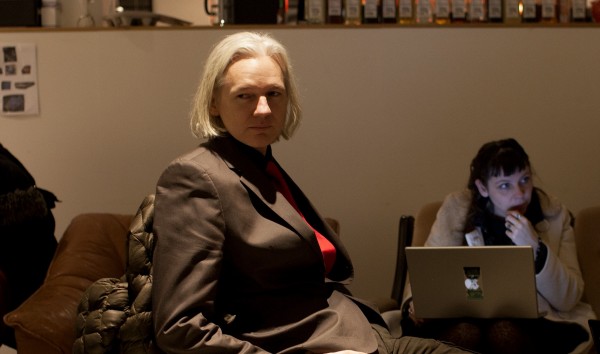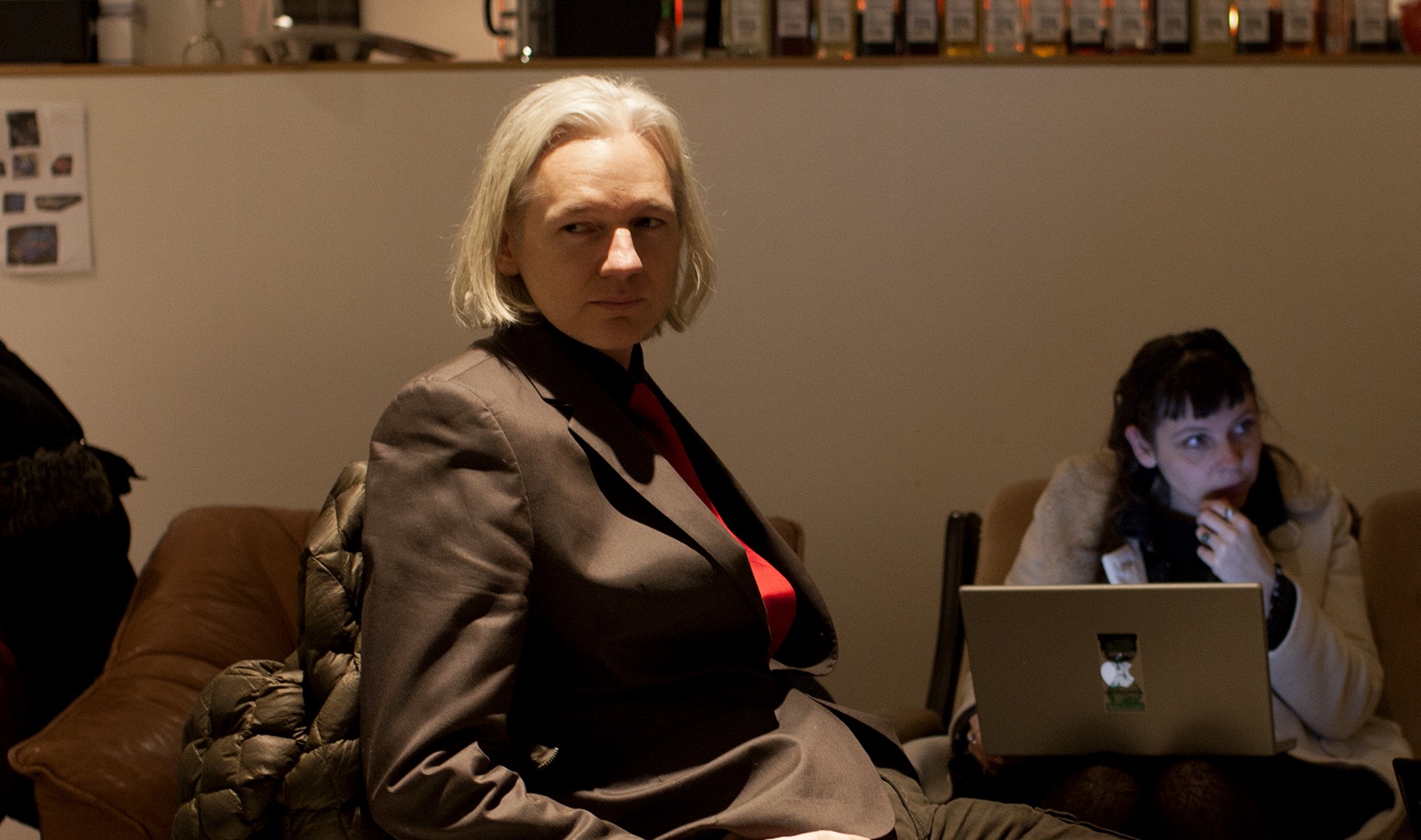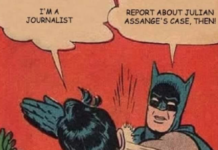
GUEST BLOG: Morgan Fee
The Story of Wikileaks
Director: Alex Gibney
The WikiLeaks story is one of the most significant political events in recent history. As such, it is something that should be given proper attention. Eloquently and meticulously told, We Steal Secrets does not disappoint.
We Steal Secrets is the latest documentary from investigative film-maker Alex Gibney which attempts to unfold the complex and controversial character of Julian Asssange – the key figure behind the internet activist organisation WikiLeaks. What emerges is an engaging and somewhat heart-breaking story of a fall from grace in the pursuit of an ideal.
Because of the intense media attention that has covered Assange and his organisation in recent years, one may think that a film charting such recent history would be somewhat unnecessary. However, Gibney has expertly managed his material – compiled from the testimony of over 20 witnesses – to tell a human story that beautifully explores the contours of one man against the backdrop of contemporary society as it rapidly expands in the information age.
The story reveals itself slowly, beginning with an idealistic Assange and his co-workers, doggedly committed to the achievement of true transparency within the media and state organisations. As WikiLeaks gains popularity and receives the Afghanistan War Logs – thousands of documents containing potentially dangerous information – the viewer begins to question how much Assange to sacrifices in his endeavours. Assange’s brutal response to the moral quandary of protecting a few individuals versus complete openness raises compelling questions about the new information age and the trust we place (or don’t place) in the State.
The picture painted is one of “noble cause corruption” – where a man violates ethical or legal standards fuelled by the belief that they will achieve a higher good. Assange is shown as a character who is victim of his own hubris, betrayed by the media which had been his tool. Ironically, following sexual assault charges (which he claims to be the fabrication of a witch-hunt) Assange has felt forced into secrecy and evasiveness, embodying the very tactics which he was trying to combat. Moreover, Assange’s legal fees have led him to hold his celebrity for ransom – the film-maker unable to get an interview for anything less than $1m.
Neither villain nor hero, Assange is shown as something more complex: a human being with a whole host of ideas and beliefs and means by which they can be made manifest. One of the film’s greater achievements is also to redirect the focus to the role of the whistleblowers who provided WikiLeaks with the information in the first place – most centrally Bradley Manning who has remained in captivity awaiting trial for over three years. While most of the public attention has either focused purely on Assange or conflated his charges with Manning’s, the film-maker strains to make the distinction clear and to place an emphasis on the collective rather than one man against the world. By extension, what the film achieves so beautifully is to hold a mirror up to the public, for whom Assange’s efforts and those of his ‘adversaries’ are really in the name of.
5 Stars






Christ, are you kidding? He had access to no one close to Assange or anyone currently operating in Wikileaks, and a number with unstated agendas and vendettas. His full title is a outright lie, “We steal Secrets” and the whole tone was of profiling Manning and Assange was if they’d committed Columbine and this was a tragic post-mortem. Hello, they’re still alive, they ain’t killed anyone, and are being persecuted by the greatest power in the world. The political blinkers on Gibney’s hear-no-evil/see-no-evil standard of “evidence” are continental.
If he’d pursused a “noble cause corruption” story about the millions slaughtered in the name of American exceptionalism, then he might have a film.
I didn’t realise Wikileaks stole secrets. I thought they were freely given to them. Another somewhat unnecessary film I will not be watching – from its name to its subject it sounds like another smear job. When are people going to understand, it is not the man but the message that counts?
I just recently read ‘Assange: the unauthorised autobiography’ which was fascinating. He talks a bit about the sexual assault charges there – of course its only his side of the story but if what he claims is accurate he should have no trouble proving it in court (if it ever gets there).
The charges are no issue. There aren’t even any charges to face, just questions re the facts; facts that have already been heard once by Sweden’s prosecutor, who found no case to answer.
The problem is the sealed indictment on espionage charges from the US, and Assange risking any situation where Sweden or Britain are asked to hand him over to them. And if he is forced to effective “house arrest” for fear of such charges, that works out just as well for the US. It’s Sweden who is obstructing justice by not coming to the UK to ask him those procedural questions.
Was reading a John Pilger post of June 20, 2013 – “Understanding the latest leaks is understanding the rise of a new fascism” within which he mentions this film, which I will quote:
“…….We Steal Secrets, a cinematic hatchet job on Julian Assange, were made with generous backing by Universal Studios, whose parent company until recently was General Electric. GE manufactures weapons, components for fighter aircraft and advanced surveillance technology.”…….
Need I say more.
Comments are closed.